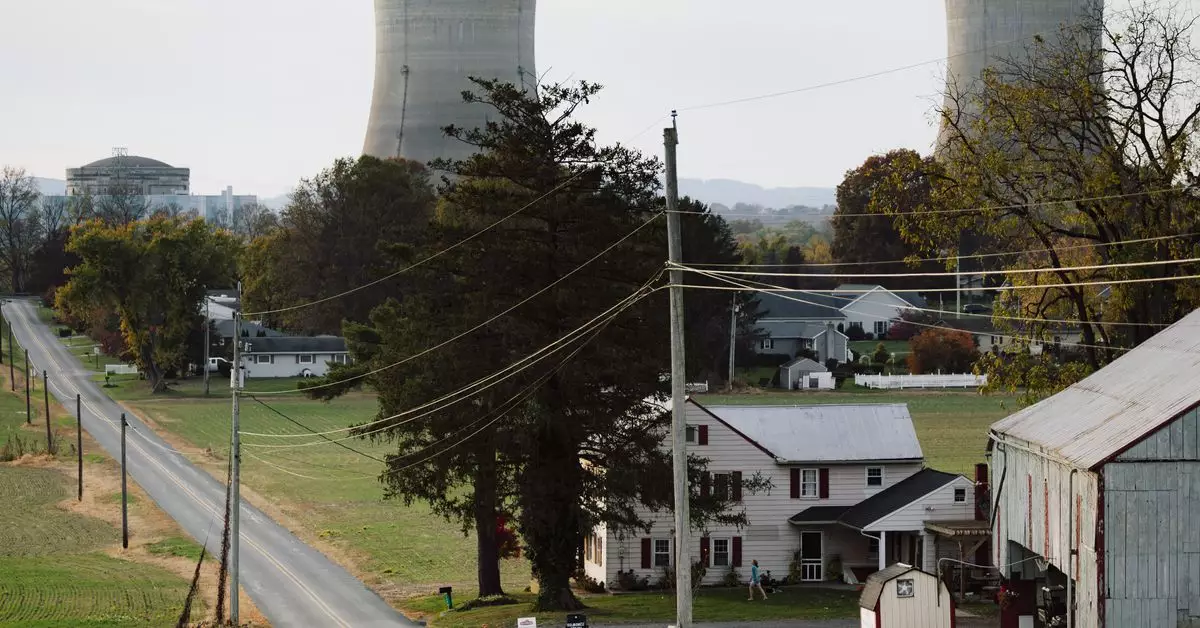In a groundbreaking move, the General Services Administration (GSA) has recently signed a ten-year contract valued at $840 million for the procurement of nuclear energy, marking a significant milestone in the U.S. government’s relationship with clean energy sources. This contract, which is poised to supply over 10 million megawatt-hours of electricity—enough to power 1 million homes annually—highlights a growing trend among major corporations and government entities to embrace nuclear power for meeting rising energy demands. Following a wave of similar agreements forged by technology giants like Microsoft and Meta, the GSA’s commitment may shift the future of energy procurement in the public sector, catalyzing a renaissance for nuclear energy.
Strategic Collaboration with Nuclear Energy Providers
The GSA awarded this substantial contract to Constellation, the largest operator of nuclear power facilities in the United States. In conjunction with this agreement, Constellation has been in the spotlight for initiatives like the plan to restart a nuclear reactor at Three Mile Island—historically noted for its catastrophic accident in 1979. By collaborating with a company that generates roughly 10 percent of the nation’s carbon-free energy, composed mainly of nuclear sources, the GSA is aligning itself with a reliable partner at a pivotal moment for clean energy transition. As Paul Adams, Constellation’s spokesperson, emphasized, nuclear power will play a vital role in fulfilling this ambitious contract.
The increasing electricity demands posed by AI data centers and other high-tech industries have created an urgent need for efficient, scalable, and clean energy solutions. The U.S. government, being the largest consumer of energy in the nation, is strategically positioning itself to leverage nuclear energy for greater reliability and sustainability. As stated by Joe Dominguez, Constellation’s president and CEO, the shift to include nuclear energy in public and private sustainable energy strategies marks a transformative moment. The GSA’s monumental contract reflects the federal government’s proactive stance in fortifying nuclear energy’s reputation as a legitimate, sustainable power source.
The GSA contract is significant not merely for its scale but also for the financial stability it provides. By locking in a fixed price for electricity over the next decade, the federal agencies involved—spanning departments from Veterans Affairs to the National Park Service—can better anticipate their energy costs amid the unpredictable landscapes of technological expansion and fluctuating energy markets. This stable procurement strategy offers not only price predictability but also shields agencies from potential spikes in energy prices, an increasing concern as demand escalates with the proliferation of data centers requiring vast amounts of electricity.
Nuclear Energy and the Path to Carbon Neutrality
Constellation’s commitment to advancing nuclear energy is underscored by its ambitious goal of 100 percent carbon-free electricity by 2040. As the company integrates additional capacity into its existing plants, thanks to the GSA contract, it further establishes itself as a leader in the clean energy arena. With nuclear energy serving as a backbone to many of its sustainability initiatives, this contract ultimately contributes to an expansive objective: the reduction of carbon footprints across various sectors.
While Constellation has declined to elaborate on how much energy from this contract will come from various sources like wind or solar, the success of nuclear energy remains paramount as the country tackles climate change challenges. In light of ongoing efforts to transition away from fossil fuels and toward cleaner energy sources, such agreements signal an evolving mindset that seeks to combine technological innovation with environmental stewardship.
The Bigger Picture: Implications for Energy Policy
The recent federal push for nuclear energy, particularly under the Biden administration, reiterates its role in shaping a cleaner energy future. Programs like the U.S. Department of Energy’s substantial loans aimed at revitalizing retired nuclear plants demonstrate a dedicated effort to position nuclear energy as a cornerstone in the fight against climate change. This renewed interest from both government and corporate sectors could herald a new chapter for nuclear energy, transforming it into a vital player in the U.S.’s strategic energy landscape.
The GSA’s innovative nuclear energy procurement contract represents a transformative step for the U.S. government, not only securing a reliable energy supply but also signaling the significance of nuclear energy within the larger context of sustainable development. As technological advancements continue to reshape the energy sector, partnerships like these will be essential for navigating challenges ahead, making clean, affordable energy a tangible reality for millions.

